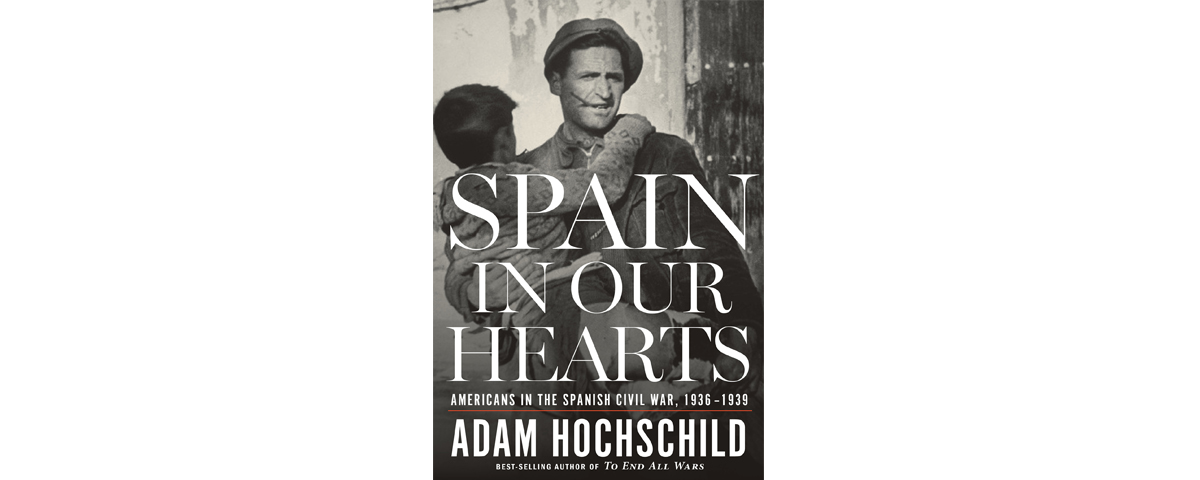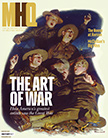Spain in Our Hearts: Americans in the Spanish Civil War, 1936–1939
By Adam Hochschild.
Houghton Mifflin Harcourt, 2016. $30.
Reviewed by Kevin Baker
IT WAS THE CAUSE OF A GENERATION. The Spanish Civil War, as Adam Hochschild makes clear in this outstanding history, reshaped everyone and everything it touched. Many individuals and institutions we would prefer to revere—among them the Catholic Church, the European democracies, American business leaders, the press, President Franklin Roosevelt and his government—behaved abominably, while many devoted to the worst causes, such as Soviet dictator Josef Stalin, nobly met the challenge.
Hochschild is plainly sympathetic to the left-wing “Republican” (Loyalist) side that was the democratically elected Spanish government. But he does not look away from its outrages: the murder of more than 7,000 members of Spain’s Catholic clergy, the burning of hundreds of churches and cathedrals, and the purges by its Stalinist secret police.
The rebelling Falangists—the Spanish fascists politely known as “Nationalists”—ran up a much higher body count, shooting prisoners and murdering thousands of peasants, workers, and “intellectuals.” The Falangist leader, Generalissimo Francisco Franco, a shabby, potbellied psychopath, openly endorsed terror bombing, mass looting, and rape as weapons of war. The Catholic Church enthusiastically supported all this and worse.
While Adolf Hitler and Benito Mussolini provided tanks, warplanes, submarines, and troops—without which Franco undoubtedly would have been defeated—the Western democracies did almost nothing to help the Republicans. It is unlikely that Roosevelt could have done as much as Hochschild implies he could have to actively intervene on their behalf. But it is inexcusable, as Hochschild makes clear, that his administration ignored the machinations of Torkild Rieber, the pro-Fascist chairman of Texaco, who provided Franco with free oil, conveyed it in his company’s tankers (in violation of U.S. law), and used his company’s maritime intelligence network to betray Republican supply ships to Mussolini’s submarines.
The silence of the democracies left the Republicans dependent on the Soviet Union, which supplied them with arms and advisers in exchange for nearly three-fourths of Spain’s gold reserves as well as a frightening campaign of political trials and executions.
What was left, then, was only the courage of the people who could not countenance the rape of Spain, the thousands of men and women from all over the Western world who joined the International Brigades. Hochschild focuses on a handful of subjects—among them an ambulance driver, a nurse, and several journalists, including Ernest Hemingway, then a swaggering correspondent for the North American Newspaper Alliance.
One wishes that Hochschild had cast his net a little wider, but that would not have allowed for the shining courage and tenacity that he draws out of his subjects’ narratives. While the Spanish valued these men and women, they were often sacrificed to the confusion and exigencies of the war: thrown into suicidal assaults, barely trained and equipped, and provided with little in the way of food, shelter, or proper medical care. They bore up anyway and helped keep the Republic alive for an astonishingly long time.
And for their efforts, they were often treated as near-criminals in the McCarthyist years after World War II.
The volunteers who came to Spain were mostly dedicated socialists and communists, and Hochschild doesn’t hesitate to explore their naïveté or their at times willfully blind obedience to the Moscow party line. Almost all his subjects, though, are heartbreakingly American types.
Even Hemingway, for all his macho bombast, proved to be serious about his work there and was genuinely affected when the shot-up International Brigades were pulled out of Spain, shouting “They can’t do it! They can’t do it!” before bursting into tears. Hochschild makes us feel like doing the same today. MHQ
KEVIN BAKER is a novelist, historian, and journalist. His most recent book is America the Ingenious: How a Nation of Dreamers, Immigrants, and Tinkerers Changed the World (Artisan, 2016).
[hr]
This article originally appeared in the Winter 2017 issue (Vol. 29, No. 2) of MHQ: The Quarterly Journal of Military History with the headline: Reviews: Causes and Effects.
Want to have the exquisitely illustrated, premium-quality print edition of MHQ delivered directly to you four times a year? Subscribe now at special savings!






